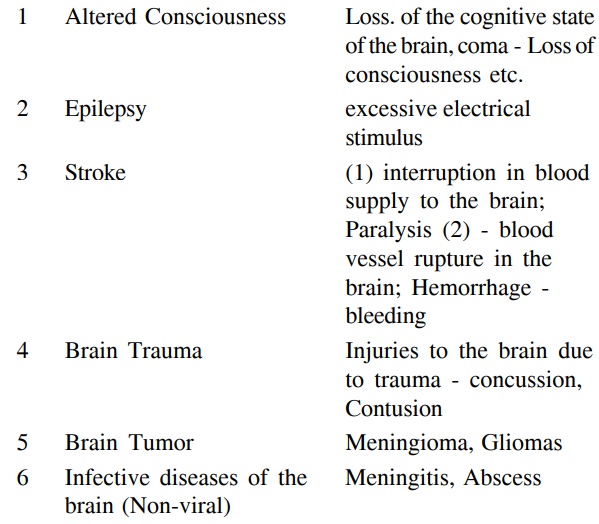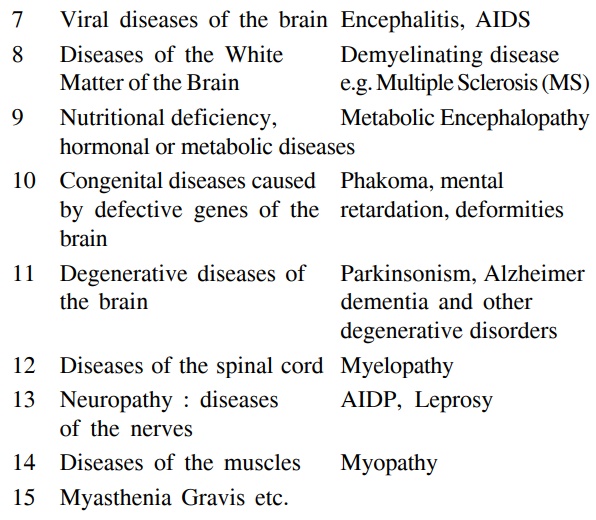Chapter: Diseases of The Brain and Nervous System(A Health Education Guide): An overview of the Nervous System
Common diseases of the brain and nervous system
COMMON DISEASES :
After understanding the basics of the brain, we will now classify the common diseases of the brain and nervous system:


The above mentioned diseases are known as neurological disorders. A neurologist or any experienced physician can treat them. Diseases of the psyche (mana) are called psychiatric disorders e.g. depression, anxiety, psychosis, neurosis, personality problem, psychosexual diseases etc. A qualified psychiatrist should treat these diseases. Normally in psychiatric diseases investigations like CT scan, E.E.G. and Lumber Puncture are normal. Many a times there can be similar symptoms creating confusion. For instance a change in the personality of a patient may either be due to depression or brain tumor (frontal or corpus callosal region). This can result in serious lapse in diagnosis. Therefore, in each psychiatric case a detailed history as wellas physical examination is essential. If in doubt, it is always better to get a test or two (like CT Scan or E.E.G) done, rather than label the patient a psychiatric case in haste. Fortunately, such errors are extremely rare.
At times head injuries in cases of road accidents, falling from a height, or injury due to an instrument, demand immediate emergency treatment. In such cases it is essential that the patient is immediately shifted to a hospital without wasting any time, and given emergency treatment by a neurosurgeon.
After this basic information about the brain, we will now try to understand the various diseases of the brain in detail, in the subsequent chapters. I would like to clarity that above mentioned psychiatric disorders being out of context, they are not discussed here.
Finally, a most important point - It has been observedfrom experience that, though timely, correct diagnosis and proper medications are important for curing a patient, there are other equally important factors to bring a patient to a state of total healing & health which are unfortunately not being given proper importance in modern medicine.
It is important for the patient to have faith in his doctor and have will power, a desire to live, a positive attitude and a disciplined and simple lifestyle, for a quick and complete recovery. This apart, the sympathy of the doctor towards his patient, his honest dedication towards his profession as well as his skill and high character are vital. Also the care and kindness of nursing staff in the ward are equally important.
The care and warmth of family members, friends and relatives, prayers, the social atmosphere of the home and accurate information regarding the disease also playimportant role in the restoration of the health of the patient. All these points are worth taking into consideration and due emphasis should be given to each of them, in the management of a patient. In short, the aim should behealing of a patient and not merely eradication of the disease - symptoms.
Related Topics